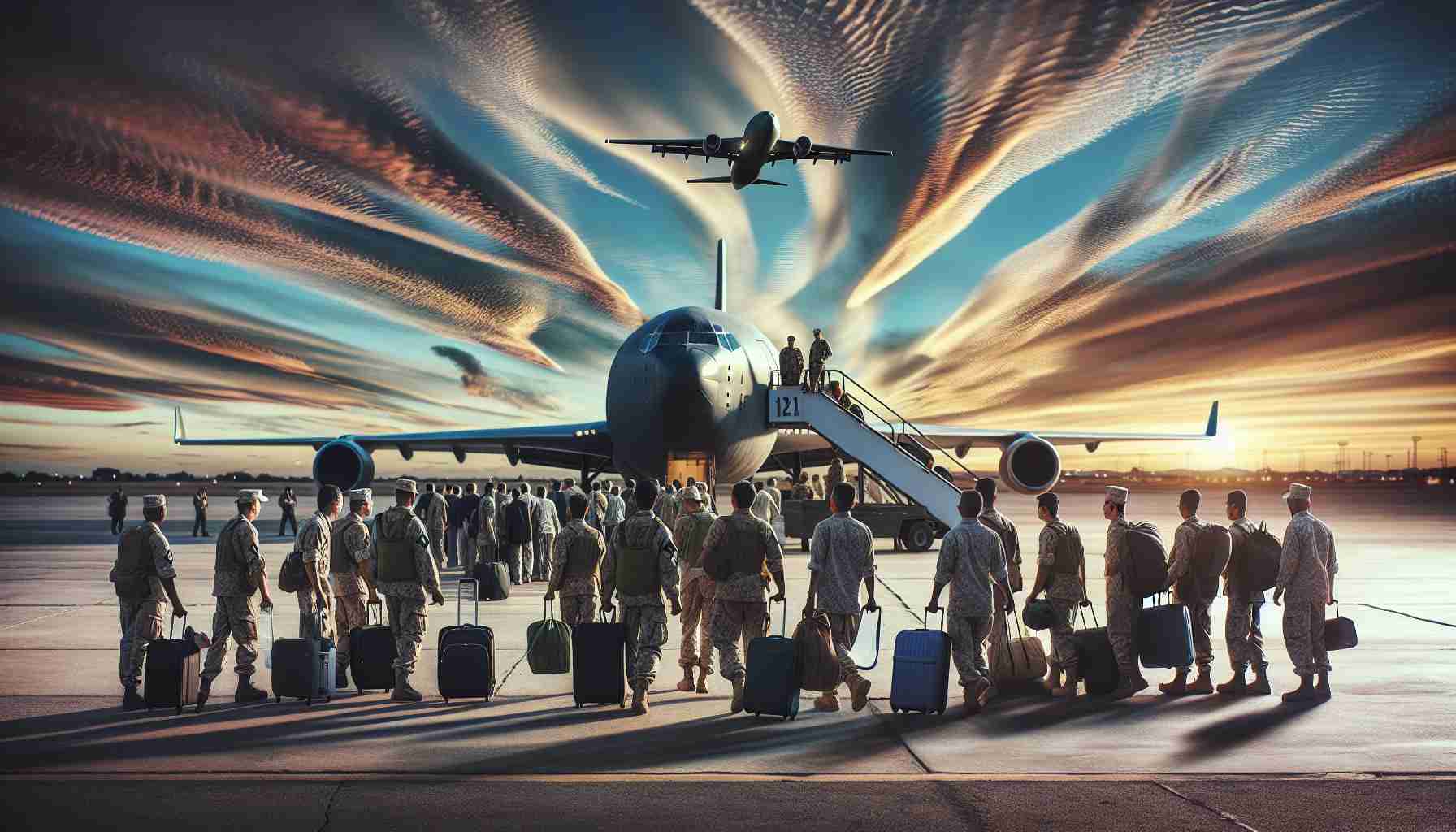- The U.S. is seeing a significant increase in deportations, particularly targeting Indian migrants using military aircraft.
- The Trump administration is utilizing military resources for immigration enforcement and enhancing security at the U.S.-Mexico border.
- Temporary Protected Status for about 350,000 Venezuelans is being revoked, potentially leading to mass deportations in the near future.
- These immigration changes reflect a strategic shift focused on national interests, with potential negative consequences for vulnerable populations.
- The evolving immigration policies illustrate a complex and potentially harmful impact on families and communities both in the U.S. and abroad.
The U.S. immigration landscape is shifting dramatically as the Trump administration intensifies its crackdown on migrants. Recent reports reveal that Indian migrants are being deported back to their home country aboard military transport planes, marking a significant escalation in enforcement tactics.
In a stunning turn of events, U.S. military aircraft, equipped with the latest in aerospace technology, departed for India with these migrants onboard. As part of a broader strategy, President Trump has enlisted the military to streamline immigration enforcement, sending troops to bolster security at the U.S.-Mexico border and utilizing military resources for deportation.
Simultaneously, significant changes are unfolding for Venezuelans in the U.S. The Department of Homeland Security has announced plans to revoke Temporary Protected Status for hundreds of thousands of Venezuelans—leaving many at risk of deportation come April. This controversial decision affects nearly 350,000 Venezuelans, who could soon find themselves fleeing unstable conditions once again.
The Trump administration is on a mission to reshape immigration protocols, asserting this approach is crucial to national interests. Yet, critics argue these actions may have detrimental effects on vulnerable populations seeking refuge.
As the deportation wave continues to rise, it serves as a stark reminder of the evolving nature of immigration policy in the U.S. The takeaway? The ramifications of these aggressive measures will likely resonate far beyond the borders—impacting families and communities both here and abroad.
Shocking Developments in U.S. Immigration: Military Involvement and Protect Status Revocation
Overview of Recent Changes in U.S. Immigration Policy
The U.S. immigration landscape is undergoing fundamental shifts as the current administration enhances enforcement strategies. Recent reports indicate that military aircraft have been utilized to transport Indian migrants back to their homeland, signifying a dramatic escalation in deportation tactics. This is part of a larger strategy sanctioned by President Trump, who has directed military resources towards immigration enforcement and border security operations.
Adding to this environment of uncertainty, the Department of Homeland Security (DHS) is moving to revoke Temporary Protected Status (TPS) for approximately 350,000 Venezuelans residing in the U.S., many of whom would be returned to unstable conditions in their home country. Such developments highlight both the intensity of current policy shifts and their implications for vulnerable immigrant populations.
New Insights and Features of Immigration Policy
1. Use of Military Aircraft for Deportation:
– The decision to employ military planes, equipped with advanced technology, marks an unprecedented method of deportation, highlighting an operational pivot in managing migrant movements.
2. Financial Implications:
– The cost of utilizing military resources for immigration enforcement raises discussions about budget allocations within the military and the effectiveness of this strategy, especially amidst humanitarian concerns.
3. Impact on Community Dynamics:
– The increasing deportation actions are not just legal procedures but also deeply affect families, communities, and relationships, leading to a broader societal impact that can foment fear and uncertainty among immigrant populations.
Key Questions About U.S. Immigration Changes
Q1: How will the revocation of Temporary Protected Status affect Venezuelans living in the U.S.?
A1: The revocation could lead to the deportation of nearly 350,000 Venezuelans, many of whom fled severe economic and political crises. They would potentially find themselves in perilous situations upon return, exacerbating the humanitarian crisis in Venezuela.
Q2: What could be the long-term implications of using military resources for deportations?
A2: Utilizing military resources for deportations could lead to a normalization of military involvement in civil matters, resulting in increased tensions between immigrant communities and enforcement agencies, as well as debates over civil rights.
Q3: What alternatives exist to the current immigration enforcement strategies?
A3: Alternatives may include comprehensive immigration reform, pathways to legal residency for certain groups, and increased support for refugees that prioritize humanitarian considerations while also addressing national security concerns.
Related Insights and Trends
– Market Forecast:
The increasing militarization of immigration policy may forecast a shift in public opinion and policy, leading to more stringent enforcement measures that could influence future elections.
– Sustainability and Security Aspects:
The push for border security raises questions about sustainable practices within enforcement agencies and the ethical considerations of using military assets for civilian immigration issues.
– Review of Current Protocols:
Experts are assessing whether these practices align with international human rights standards, potentially leading to legal challenges and increased scrutiny from humanitarian organizations.
For deeper insights, you can visit USCIS for comprehensive information and updates regarding immigration policies and enforcement changes.
